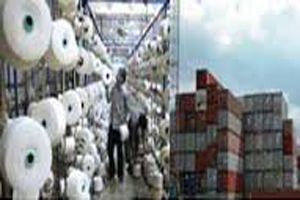
Pakistan to still see rise in textile exports
YarnsandFibers News Bureau 2014-02-26 15:00:00 – KarachiPakistan textile exports to the European Union (EU) are projected to rise by up to $1billion a year after the GSP status, effective from January 1, 2014; however it is yet to record any significant increase. It’s textile exports remained $1.097 billion in January 2014 against $1.059 billion export in January last year, a measly 3.6 percent increase.
Despite the grant of Generalized System of Preferences (GSP) Plus status by the European Union, the textile export has failed to pick up momentum due to several challenges mainly shortage of energy.
According to officials, the order book has shown significant increase from EU countries after January 2014 following the grant GSP Plus status, but these orders are yet to be accomplished. The industry is expecting a significant increase in exports from March and April 2014.
Another hurdle coming in the way to textile exports is high demand of subsidised Indian yarn. India's yarn exports to Pakistan increased by more than 10 times. The spinning sector and government officials expressed concerns over the unrestricted import of Indian yarn by Pakistan, saying that it is negatively affecting the local yarn manufacturers.
They have urged the government to intervene in this matter to protect the local spinning sector. If the government fails to take proper measures to check the unrestricted import of subsidised Indian yarn, the millers will be left with no other choice than to close their mills.
In addition to this, energy shortage particularly power and gas remains a major hurdle to increase the output.
Officials further added the overall textile exports from the country recorded $8.035 billion during July-January (2013-14) as compared to $7.468 billion during July-January (2012-13). However, the increase in exports was mainly of raw materials instead of value-added products.
Market Intelligence
Ask for free sample Report

experience
Customer Base
dedicated team
Countries Served Worldwide









